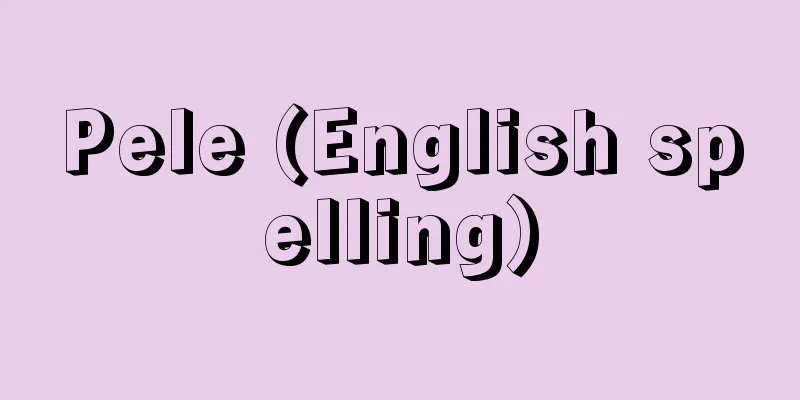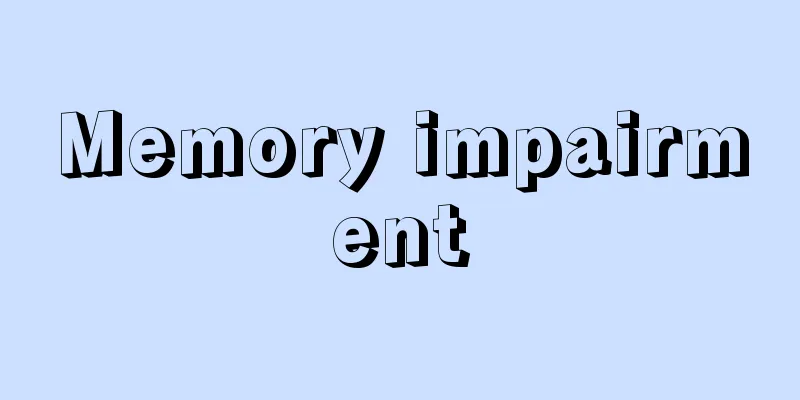Psychiatric expert testimony

|
There are provisions related to mental disorders and mental capacity in criminal law and civil law, and judges and prosecutors may have difficulty in making judgments regarding the application of these provisions. In such cases, psychiatric or psychological tests ordered or requested by judges to be conducted by experts (usually psychiatrists) and judgments based on the tests are called psychiatric evaluations. Strictly speaking, psychiatric evaluations are limited to cases ordered by judges, but they are also broadly called psychiatric evaluations when requested by investigative agencies, such as prosecutors. Psychiatric evaluations become an issue in cases of criminal responsibility under criminal law, capacity to act, tort capacity under civil law, guardianship and curatorship trials, and capacity to sue and testify under criminal procedure law. In practice, the most important case, and the one in which differences of opinion sometimes arise between experts or between experts and judges, is the case of criminal responsibility. Criminal responsibility is the mental capacity of a defendant or suspect to be responsible for his or her own crimes, and people are usually considered to have full criminal responsibility unless there are special exceptional circumstances. When a person has completely lost their capacity to be held responsible, it is called incompetence (in Japan's Criminal Code, insanity), and when their capacity to be held responsible is not completely lost but is significantly reduced, it is called limited capacity to be held responsible (in Japan's Criminal Code, impaired mental capacity). If a person is found to be incapable of being held responsible in court, they will be acquitted, and if they are found to be of limited capacity to be held responsible, in Japan the sentence will be reduced. Whether or not a person has capacity to be held responsible, or whether their capacity is significantly reduced, is a matter for legal professionals such as judges and prosecutors to decide, and psychiatric evaluations provide the basis for such decisions. Diminished capacity to be held responsible (incompetence and limited capacity to be held responsible) is an issue in Japan's Criminal Code in cases of mentally disabled people and minors, but as there is a provision in the law that does not punish minors under the age of 14, psychiatric evaluations are rarely required. Therefore, a psychiatric evaluation regarding criminal responsibility is usually required in the case of a person with a mental disorder. The following are the general criteria for determining criminal responsibility for a person with a mental disorder. (1) In the case of mental illnesses such as schizophrenia and manic-depressive disorder, once a diagnosis is made the person is immediately deemed not responsible for his or her crime, and there is no need to consider the severity of the illness or the relationship between the symptoms and the crime. (2) In the case of mental disorders caused by senile dementia, head trauma, etc., the degree of diminished criminal responsibility is determined according to the severity of the mental disorder. (3) In the case of intellectual developmental disorders, the main issue is the level of intelligence, and generally, those with mild cases (IQ 69-50) are considered to be limited responsible for their own actions, those with moderate cases (49-20) are considered to be limited responsible for their own actions or not responsible for their own actions, and those with severe cases (19 or below) are considered not responsible for their own actions. (4) In the case of alcoholic intoxication, according to the classification of intoxication by Swiss physician H. Binder (1899-1989), full responsibility is recognized for simple intoxication, limited responsibility is recognized for complicated intoxication, and no responsibility is recognized for pathological intoxication. (5) Full responsibility is recognized for personality disorders (psychopathy), sexual perversions, psychogenic reactions, and neuroses. [Osamu Nakata] "Legal Psychiatry, edited by Katsumune Kakeda, Nobuyoshi Takemura, and Osamu Nakata, Modern Psychiatry Series, Vol. 24 (1976, Nakayama Shoten)" ▽ "Psychiatric Evaluation, edited by Akira Yamagami (1996, Life Sciences)" ▽ "Legal Psychiatry and Psychiatric Evaluation, by Susumu Oda (1997, Igaku Shoin)" [References] | | | |Source: Shogakukan Encyclopedia Nipponica About Encyclopedia Nipponica Information | Legend |
|
刑法、民法などの法律には精神障害や精神能力に関連した規定があり、その適用に関係して裁判官や検察官などが判断に困ることがある。そのような場合に、裁判官などが専門家(通常、精神医学者)に命令ないし依頼して行われる精神医学的ないし心理学的な検査と、それに基づく判断を精神鑑定という。厳密には裁判官が命令する場合に限られるが、捜査機関、たとえば検察官が依頼する場合も広く精神鑑定という。精神鑑定が問題になるのは、刑法では責任能力、民法では行為能力、不法行為能力、後見・保佐開始の審判、刑事訴訟法では訴訟能力、証言能力などの場合である。実際上、もっとも重要で、ときに鑑定人相互の間に、あるいは鑑定人と裁判官などとの間に意見の相違が生じることがあるのは、刑法上の責任能力の場合である。責任能力は、被告人または被疑者の、自らの犯行に対して責任を負うことができるだけの精神能力であり、通常人は特別な例外状態にない限り、完全な責任能力を有すると考えられる。 責任能力がまったく失われている場合は責任無能力(わが国の刑法では心神喪失)といい、責任能力がまったくは失われてはいないけれども著しく減退している場合は限定責任能力(わが国の刑法では心神耗弱(こうじゃく))という。裁判で責任無能力と判定されると、無罪が言い渡され、限定責任能力と判定されると、わが国の場合では刑が軽減される。責任能力があるかないか、あるいは著しく減退しているかどうかは、裁判官、検察官などの法律家の決定事項であり、精神鑑定はそのような決定の基礎を提供するものである。責任能力の減喪(責任無能力や限定責任能力)が問題になるのは、わが国の刑法では精神障害者、未成年者の場合であるが、未成年者については、14歳未満の者は罰しないという規定があるため、精神鑑定が必要になることはまれである。 したがって、責任能力に関して精神鑑定が必要になるのは通常、精神障害者の場合である。精神障害者の責任能力については、次のようなだいたいの判定基準がある。 (1)統合失調症(精神分裂病)、そううつ病などの精神病では、それらの診断がつけばただちに責任無能力で、病状の軽重や、症状と犯行との関連性を考慮する必要はない。 (2)老年期痴呆(ちほう)、頭部外傷などによる精神障害では、精神障害の程度によって責任能力の減喪が決められる。 (3)知的発達障害では、主として知能程度が問題になり、一般に軽度(知能指数69~50)には限定責任能力が、中等度(49~20)には限定責任能力ないし責任無能力が、重度(19以下)には責任無能力が認められる。 (4)アルコール酩酊(めいてい)では、スイスのビンダーH.Binder(1899―1989)の酩酊の分類に従い、単純酩酊には完全責任能力が、複雑酩酊には限定責任能力が、病的酩酊には責任無能力が認められる。 (5)性格異常(精神病質)、性欲倒錯、心因反応、神経症にはそれぞれ完全責任能力が認められる。 [中田 修] 『懸田克躬、武村信義、中田修編『司法精神医学』現代精神医学大系24巻(1976・中山書店)』▽『山上皓編『精神鑑定』(1996・ライフ・サイエンス)』▽『小田晋著『司法精神医学と精神鑑定』(1997・医学書院)』 [参照項目] | | | |出典 小学館 日本大百科全書(ニッポニカ)日本大百科全書(ニッポニカ)について 情報 | 凡例 |
<<: Psychosurgery - Seishingeka (English spelling) psychosurgery
>>: Psychology - Geisteswissenschaften German
Recommend
Sadataka Iba
...A military commander since the early period of...
Iolē (English spelling) Iole
… After these feats, he returned to Thebes, freed...
Imide
A cyclic compound containing a -CONHCO- structure...
Luscinia luscinia (English spelling) Luscinialuscinia
… [Yukio Taniguchi]. … *Some of the terminology t...
Kenya Miura
A potter from Edo in the late Edo period to the M...
Itano [town] - Itano
A town in Itano County in the northeastern part of...
Cannibalism - Kanibarizumu (English spelling) cannibalism
The practice of humans eating other humans. The w...
Battle of Cambrai - Battle of Cambrai
…On this day, British Mark I tanks were used in t...
Dry gas meter - Dry gas meter
…Turbine meters use the flow of gas to turn an im...
Foreign Magistrate - Gaikokubugyo
A post in the Edo Shogunate. It was established o...
Hagia Sophia (Greece)
A representative Byzantine structure remaining in ...
Hemp-lined sandals - Asaura Zori
〘 noun 〙 Sandals with flat braided hemp thread sew...
National Socialist Party
A political party founded in 1905 by Yamaji Aizan,...
LDC - Eldsi
Among developing countries, least developed count...
Reform of the sect - Shumon atarame
This system was established by the Edo Shogunate u...









![Mizokuchi [town] - Mizokuchi](/upload/images/67ccf1afc977a.webp)